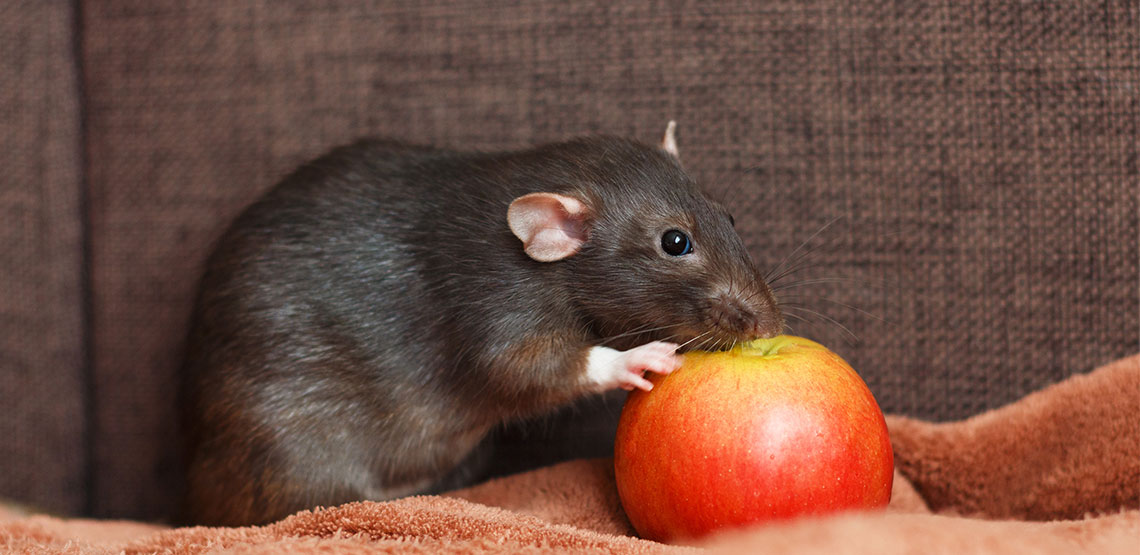Caring for Your Pet Rat
Rats are some of the most popular small pets around, and for good reason: they're relatively easy to care for, it's not hard to find space for them and they're very entertaining! Like other rodents, they are suitable for a range of ages, and the modest commitment involved is appealing for busy households. But although they bear some resemblance to other rodents, there are a few important differences to note, especially when it comes to behavior. Learn what rats need in their daily routine and how to keep them happy and healthy for the years to come.
Helpful Pet Rat Information
Three important components of pet rat care are feeding, grooming and interaction. First, make sure you feed your pet rat pellets or blocks that are nutritionally complete, and supplement that diet with small amounts of fruits, vegetables, grains and brown rice to keep them interested and well-nourished.
Grooming: It's important to keep in mind that rats have sharp nails, and these need to be trimmed if you plan on handling your pet rat at all. It won't take much -- just a couple tiny clips with the nail clipper every month or two -- but it can be difficult work if your rat tends to squirm a lot. And while the teeth don't actually need to be trimmed, like rabbits, rats will need to keep chewing in order to prevent the teeth from overgrowing and injuring the gums. You can help them out (and protect your fingers) by stocking the cage with plenty of wooden toys and blocks to nibble on.
You May Also Like:
Related Search Topics (Ads):
Behavior: Finally, the social side of rat care: your pet rat is a surprisingly smart and social creature, which means they need regular interaction. Once you've put anything chewable out of reach, bring your rat out of the cage every day to run around and play with you -- they will appreciate the time and physical contact, plus it will allow you to bond more easily.
Pet Rat Cages
Cage Characteristics: While you can get away with placing pet mice in one medium-sized cage, rats are some of the largest domesticated rodents and will therefore need more space than their smaller cousins. An important part of pet rat care is ensuring your rats are happy alone and together, which means you should opt for a large cage -- at least two square feet of floor space -- to give each their own territory. However, if your home will allow, a larger cage with different levels and shelves will be even better.
Cage Accessories: Once you've found an appropriate cage, consider how you'll outfit the inside. If it features a wire floor, you'll want to cover it with a thin sheet of wood or a similar material to protect your rat's feet. Then there's the question of bedding: should you go for wood shavings or alternative pet bedding? If you do decide on wood, avoid cedar and pine shavings, as they have been linked to respiratory health problems and changes in the liver of rodents and other caged pets. Finally, make or buy a nest box and add a few well chosen toys to keep your rat occupied, and you will have created a healthy environment that your pet rat can enjoy.

